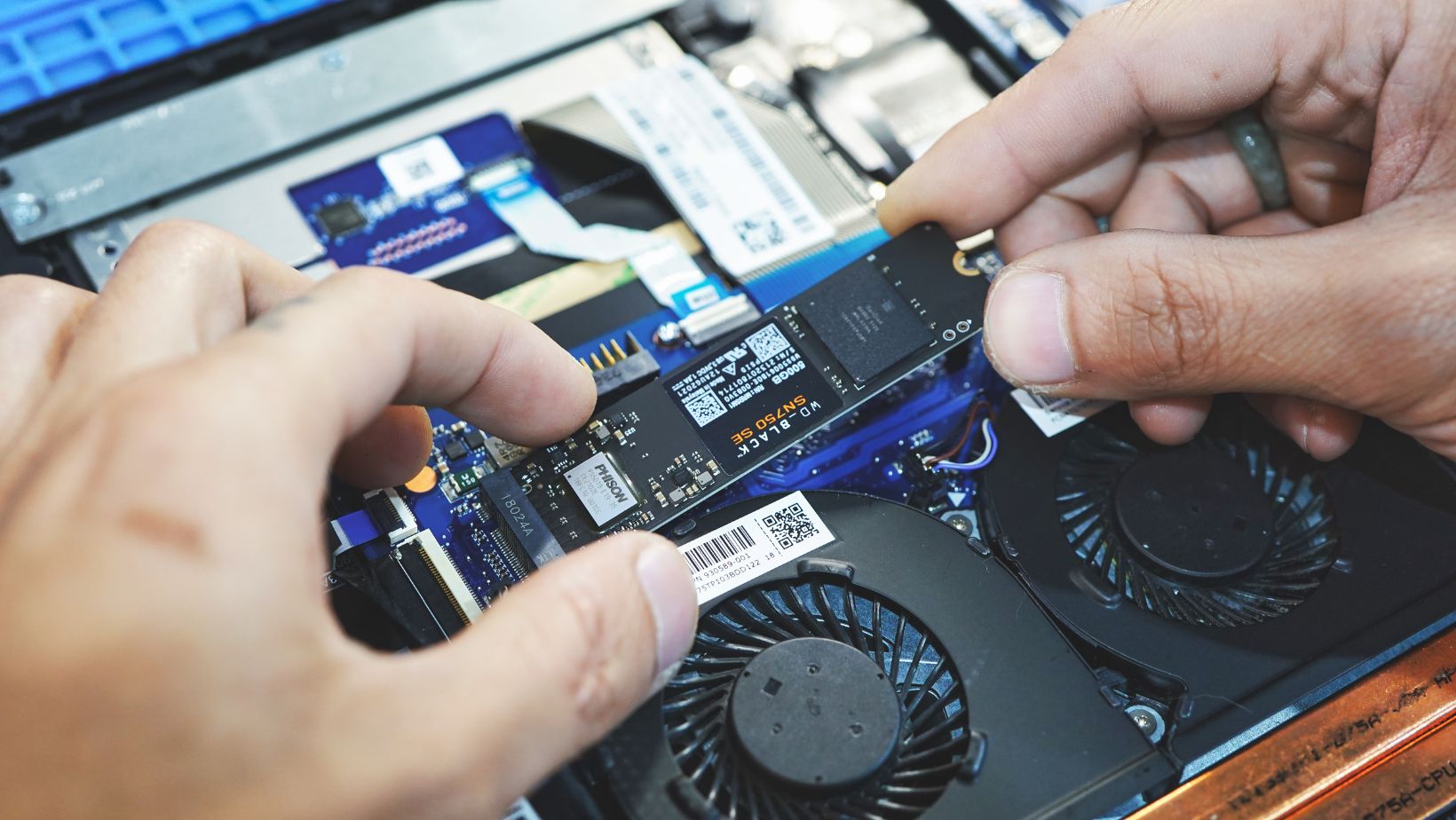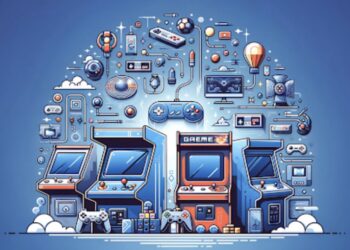The gaming industry has undergone a significant transformation over time, primarily due to the rapid advancement of computer hardware. From the early stages of low-resolution graphics and limited processing capabilities to today’s immersive virtual worlds and lifelike visuals, the evolution of computer hardware has played a crucial role in shaping the gaming experience.
The growth of gaming has necessitated the establishment of regulations, including the rise of high-speed internet. However, technology development has had positive and negative consequences in various areas. In this article, we will delve into the impact of changes in computer hardware on the gaming industry, its origins, and how it will continue to shape the future of gaming.
Historical Perspective
Magnavox developed the first-ever home video game system in 1972. However, Atari’s creation of Home Pong in 1975 marked the entry of home consoles. Like the arcade cabinets at the time, Home Pong was extensively replicated by numerous companies venturing into this emerging industry. Nevertheless, these consoles were quite basic, limiting gamers to only playing the games pre-installed on each individual console.
The second generation of consoles revolutionized the market by incorporating microprocessors into the console’s hardware and employing removable cartridges to store games. This allowed gamers to purchase a single system and acquire multiple games to play on that particular console. Consequently, consoles could now house a library of games.
This development opened up the market to established tech giants like Fairchild and RCA and toy companies such as Mattel and Coleco. During this generation, a total of 18 different consoles were released.
Since this moment in history, the video game market and the hardware used to create these systems have been an unstoppable force. Following the success of the Atari 2600 and its countless imitators, the 8-bit generation was about to stamp its mark on gaming history.
Major Hardware Advancements
During the 1980s and 1990s, gaming consoles such as the Nintendo Entertainment System (NES) and the Sega Genesis elevated the gaming experience to a new level. These consoles boasted enhanced graphics and sound capabilities and featured iconic games like Super Mario Bros. and Sonic the Hedgehog. Additionally, the introduction of handheld consoles like the Game Boy allowed gamers to enjoy their favorite games on the go.
The turn of the millennium witnessed the emergence of more potent consoles like the PlayStation 2, Xbox, and GameCube. These consoles supported DVD playback and provided online features that enabled players to connect with fellow gamers worldwide. Consequently, the gaming experience became more engaging and social, with multiplayer games gaining popularity. In recent years, consoles have continued to evolve.
The PlayStation 4 and Xbox One ushered in high-definition graphics and advanced online functionality, while the Nintendo Switch offered a unique hybrid console experience. Furthermore, these consoles embraced virtual reality, with devices such as the PlayStation VR and Oculus Rift allowing players to immerse themselves in virtual worlds in unprecedented ways.
While consoles have significantly shaped the gaming industry, gaming PCs have also been instrumental in revolutionizing the gaming landscape. Gaming PCs offer unparalleled power and customization options, allowing players to push the boundaries of graphics and performance.
In the past, gaming PCs were costly and inaccessible to most players. However, technological advancements and the availability of affordable components have made gaming PCs more accessible than ever before. Today, players can build their gaming rigs or purchase pre-built systems that deliver top-of-the-line performance.
Portable Gaming
The surge in the popularity of handheld gaming consoles coincides with the increasing ubiquity of the internet. Devices like the PlayStation Vita, Nintendo 3DS, SteamDeck, and Nintendo Switch have garnered dedicated fan bases.
Mobile gaming on smartphones and tablets remains highly popular due to their widespread accessibility; with nearly everyone owning a smartphone nowadays, the accessibility factor has touched countless markets, including the iGaming sector, where PayPal is a popular payment system for casino enthusiasts seeking the ability to play on the move. However, handheld gaming consoles have managed to establish their distinct market. In certain instances, they have even surpassed the popularity of traditional console gaming experiences.
Cloud Gaming & Streaming
Cloud gaming, or game streaming, enables players to access and play games on remote servers, eliminating the need for powerful hardware on the user’s side. This removes the requirement for costly consoles or high-end gaming PCs to enjoy the latest games. Instead, gamers can effortlessly stream games to their devices, such as smartphones, tablets, or low-end computers, as long as they have a stable internet connection.
The progress in internet infrastructure and the widespread availability of high-speed broadband connections have made this shift toward cloud gaming feasible. Consequently, gamers can now enjoy a smooth gaming experience with minimal latency and lag, which were previously significant concerns for cloud gaming. Additionally, the rapid expansion of data centers and the growing acceptance of edge computing have also contributed to the viability of this gaming model.
Social and Economic Impacts
PC Builders
The emergence of personalized PC constructors has ignited a social and economic transformation within the realm of technology enthusiasts. These constructors provide unrivaled customization options, enabling individuals to design a computer precisely tailored to their specific requirements and preferences. With enhanced performance optimization, future-proofing capabilities, and an avenue for creative expression, custom PC builders have captivated the attention of tech enthusiasts worldwide.
As this trend continues to gain momentum, more and more individuals are discovering the gratification and delight of constructing a bespoke PC that caters to their unique specifications. Whether for gaming, professional endeavors, or creative pursuits, these devices offer an unparalleled computing experience that distinguishes itself from the sea of mass-produced machines.
Esports
Esports competitors meticulously evaluate gaming equipment’s suitability, excellence, and ergonomic layout before making their choices. The tangible bond between players and their gear is vital, and giving utmost importance to comfort during long gaming sessions is imperative.
To summarize, gaming hardware is the foundation of the esports and competitive gaming realm. Opting for appropriate and top-notch equipment is crucial for players to unlock their utmost capabilities and elevate the gaming experience. As the esports industry continues to grow, the significance of exceptional gaming gear cannot be underestimated.
The Future of Gaming Hardware
The gaming industry is on the brink of a hardware revolution. Future gaming consoles are expected to provide unprecedented processing power and improved energy efficiency, resulting in smoother gameplay with detailed graphics.
At the same time, wearable gaming technology is gaining traction. Augmented reality glasses aim to superimpose digital elements onto the real world, while haptic feedback suits seek to make virtual experiences tactile, increasing immersion.
Traditional gaming setups, with their bulky hardware and wired limitations, may experience a decline. The trend is moving towards portable and integrated solutions, prioritizing convenience without sacrificing performance. As these innovations come to fruition, they will undoubtedly reshape the gaming landscape, offering players more immersive and interactive experiences.
Final Thoughts
Gaming is a rapidly changing industry with continuous advancements in technology. Every day, new innovations are being created to improve the gaming experience. From cloud gaming and NPCs powered by artificial intelligence to gaming laptops and WiFi extenders, there are plenty of captivating trends in both software and hardware accessories for gamers.
Regardless of whether you enjoy gaming casually or are a dedicated enthusiast, the future of gaming and its hardware possibilities are almost unpredictable. Still, with the speed at which technology is moving, it’s guaranteed that something special will always be around the corner.


















